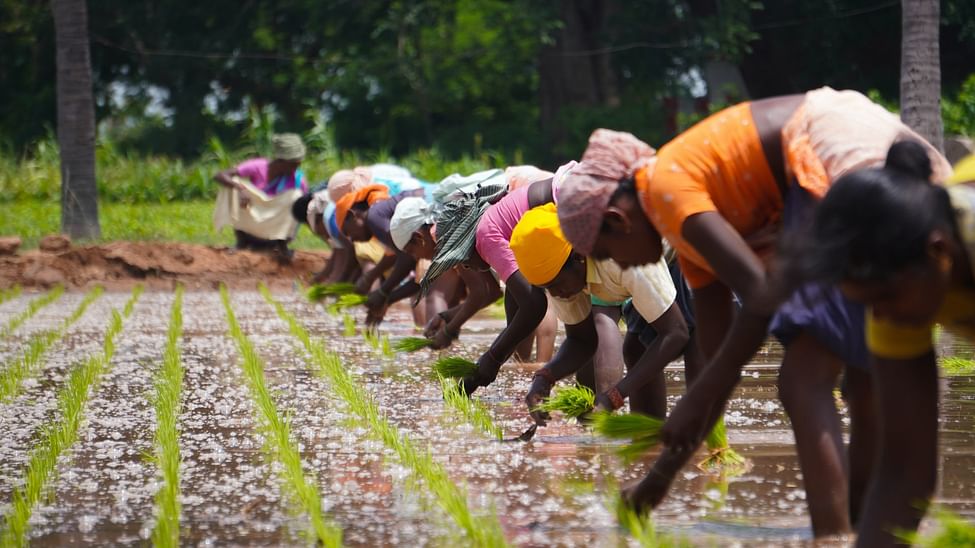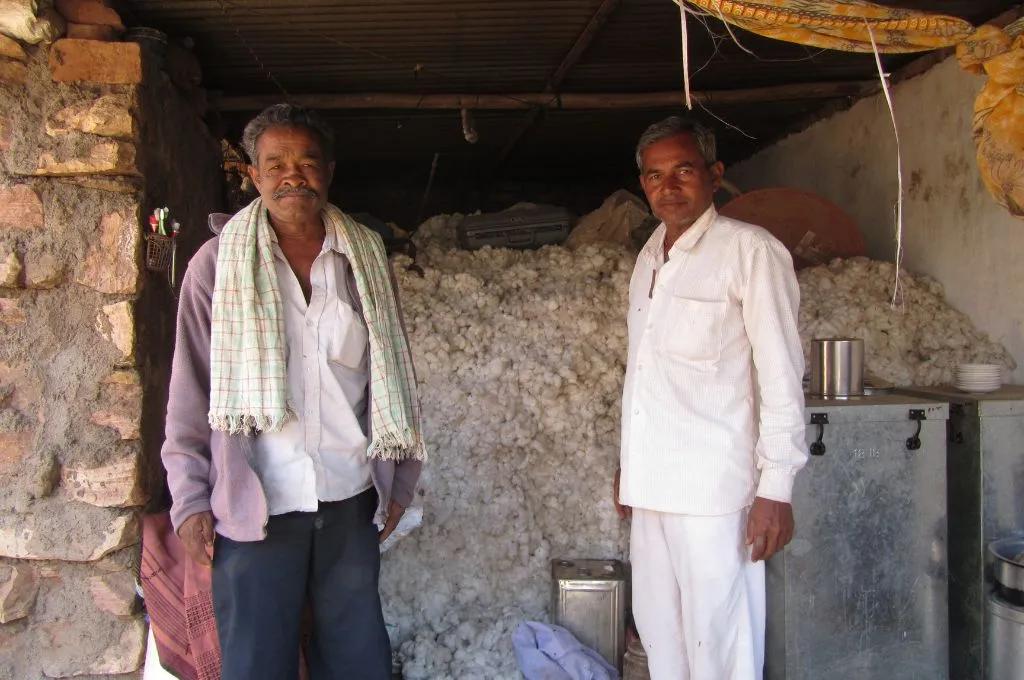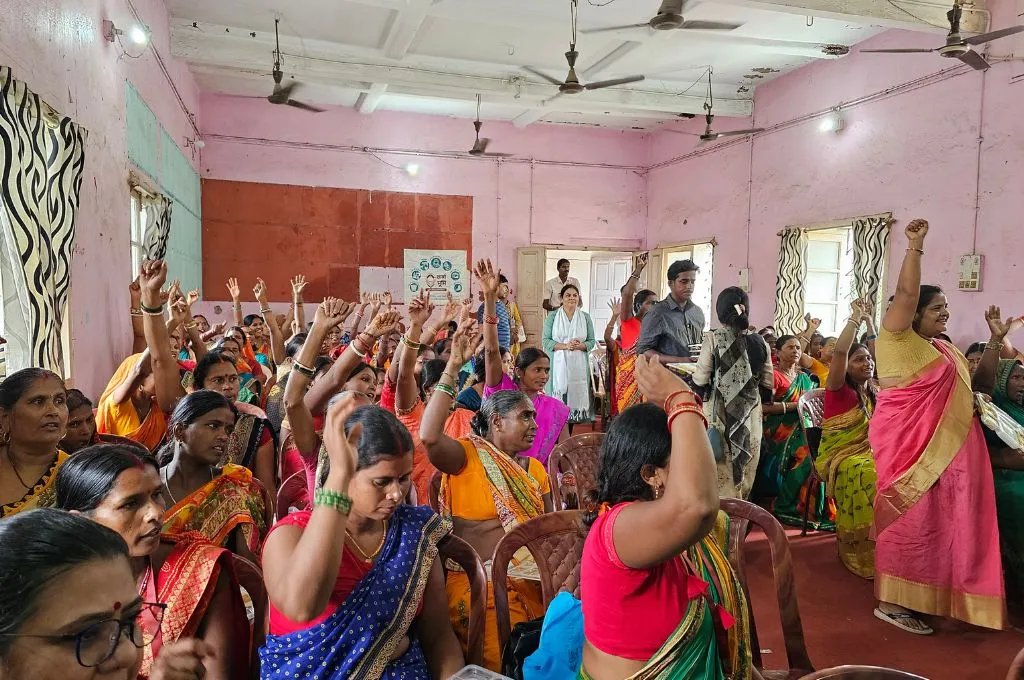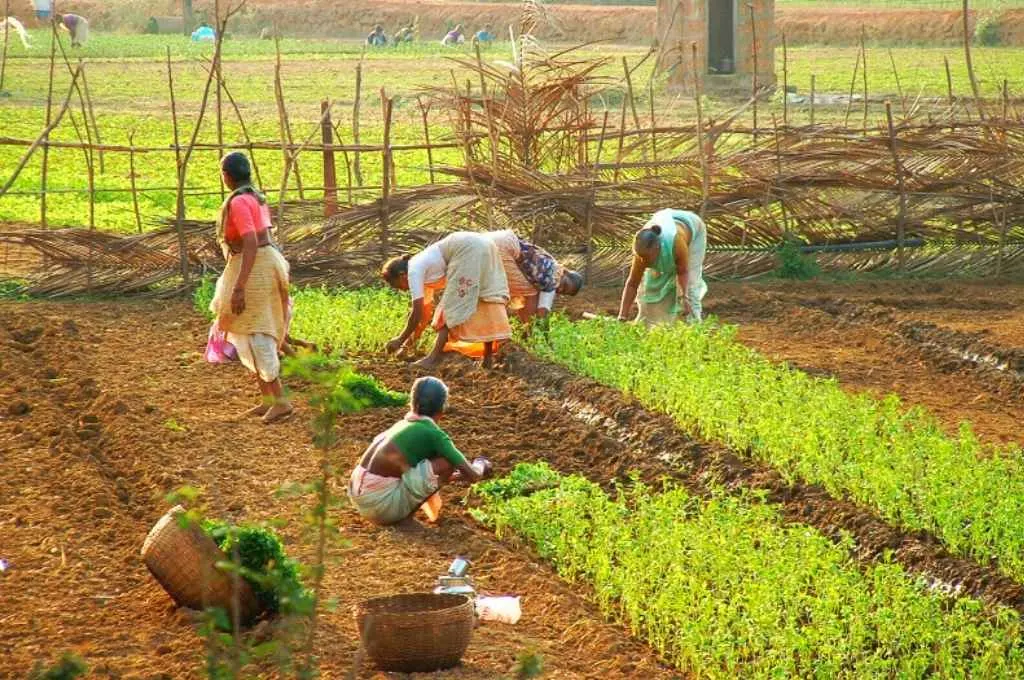Jeevamrut. Bijamrut. Matka khat. Shivansh khaad. Agneyastra.
From our work at Professional Assistance for Development Action (PRADAN), working extensively on rural livelihoods, we know that small and marginal farmers across the country are quickly and increasingly becoming familiar with these terms. They refer to organic fertilisers, fungicides, and pesticides prepared from locally available materials. And extension workers, either from government agriculture departments or nonprofits, are visiting villages and training farmers on how to prepare and apply them on their farms.
This was not the case 20-30 years ago. Back then, many of these same extension workers were visiting villages and encouraging farmers to use chemicals and adopt processes that would increase their crop yield. Conventional knowledge then, was that relying on locally available materials and traditional knowledge for farming practices was not as scientific as what the green revolution had taught us.
Today, we’re seeing that the products and processes being prescribed to farmers are different from a few decades ago—they are not chemicals, but organic. However, ironically, the approach seems to be the same: Farmers are expected to follow what the external agencies are prescribing, rather than applying their own knowledge and skills. This is a growing problem within the organic farming space in India.
Related article: Debate Series | Why ZBNF is good for India
Deskilling India’s farmers
In 1974, in his book Labor and Monopoly Capital, American political economist Harry Braverman argued that capitalism had a pervasive tendency to reorganise jobs at lower skill levels than previously. According to him, separating intelligence from muscle helps capitalists dominate both. He termed this process ‘deskilling’.
When purchasing farm inputs, we have seen farmers increasingly relying on hearsay or advertising, not on their own experience.
We have been seeing deskilling in Indian agriculture too. It is a process in which a farmer eventually becomes a labourer, who blindly follows the instruction given by seed or pesticide companies through extension workers, dealers, or the labels on the packaging of crop inputs. When purchasing inputs (for example, seeds and fertilisers), we have seen that farmers increasingly rely on hearsay or advertising, not on their own experience or knowledge acquired through experimentation. When it comes to cultivating crops, we’re seeing that farmers no longer apply their own knowledge of ecology, soil fertility management, pest management, or seed preservation, which they used to rely on half a century ago, before the advent of conventional agriculture.
Over time—and in particular after the green revolution of the 1960s, which focused on increasing agricultural production through the use of Hybrid or High Yielding Variety (HYV) seeds, chemical fertilisers, and newer methods of cultivation—this knowledge has gradually moved to research firms and seed and pesticide companies. This is because the materials employed in chemical-based or conventional agriculture are manufactured in factories and marketed by big multinationals. Agricultural practices have become increasingly ‘standardised’ as a result. Even in the case of organic farming, which is seen as an ‘alternative’ to chemical-based or conventional agriculture, methodologies are being converted into a standard ‘package of practices’ (POP) for farmers. Doing so is accelerating the deskilling of India’s farmers.
A little bit of history
After the green revolution, agriculture in India was transformed. While this form of agriculture increased the yield of some crops to a great extent, it also gave rise to many more serious issues. The most talked about is the impact of conventional agriculture on the degradation of the ecosystem. In the study, Green Revolution in India: Environmental Degradation and Impact on Livestock 1 404, the authors show how soil fertility has decreased; toxic elements have entered the food chain from chemical residue applied in the crop field; and we have lost our crop diversity due to the cultivation of only three to four major crops (rice, wheat, and maize).

In case of organic farming, methodologies are being converted into a standard ‘package of practices’ for farmers, therefore accelerating their ‘deskilling’. | Picture courtesy: Unsplash
It was only around 25 years after the green revolution, that the idea of sustainability entered the discourse of development, with the publication of the Brundtland Report (titled ‘Our Common Future’) in 1987. This report, produced by several countries for the United Nations, placed environmental issues firmly on the political agenda and proposed to see environment and development as a single issue. Gradually, people started talking about organic or natural farming as an alternative to conventional agriculture, as it could take care of the issues related to environmental degradation. Organic farming meant protecting soil fertility; maintaining the level of organic matter in soils; providing nutrients through microbial action instead of chemicals; using legumes to fulfil the nitrogen requirements of the soil; recycling organic matter such as crop residues and manures; managing diseases, pests, and weeds with natural predators; and maintaining diversity, among other things.
Organic farming may continue to promote deskilling if it is structured in the same way as conventional agriculture.
Today, India is home to an estimated 30 percent of all organic producers in the world. Most of them are small-holder and marginal farmers and have been subjected to some form of deskilling as a result of the green revolution. The conceptualisation of organic or natural farming is based on environmental sustainability. Nevertheless, it may continue to promote deskilling if it is promoted or structured in the same way that conventional agriculture has been promoted or structured. Today, in organic farming, we are seeing agencies—government and non-government—prescribe standard products and processes that farmers are expected to follow. Here, the products may be different than in conventional agriculture, but the process is the same. It does not help farmers re-articulate their understanding of nature. Nor does it enable them to use their wisdom to shape farm practices with both traditional and modern technologies, based on their own experiments and experience.
Adaptive skilling
We need an alternative approach, one that can re-skill farmers, and enable them to rediscover the principles of soil fertility management, moisture conservation, and nutrient cycles. One that lets them experiment with many processes and products using locally available inputs so that ultimately, they can adapt their experiments and approaches to best fit their context.
Related article: Entrepreneurship: the key to revitalising agriculture
In Jana, a village in Jharkhand, researchers are working with academicians of Azim Premji University (APU) and practitioners of PRADAN to do exactly that. The research project is in its third year. They are testing many kinds of organic fertilisers, pesticides, and mulching materials made from locally available inputs. The inputs for soil fertility enhancement, soil moisture retention, and pest control have been selected through literature review, farmers’ experience, and a discussion on each of the materials. And there have been a few times when villagers contradicted the views of APU or PRADAN researchers, due to their local knowledge. For example, they invalidated the idea of using bamboo leaves for mulching, as the variety of bamboo available in that area has a toxic effect on other plants when its leaves are used for mulching. Similarly, they opposed using tephrosia plants for mulching as it has toxic effects on fish.
Village researchers at Jana designed seven experiments to select the best suitable organic fertilisers, pesticides, and mulching materials in their context. In this process, APU and PRADAN helped them articulate their understanding of how nature works and how production can be enhanced without an adverse effect on the environment. This approach is different from what is often practised: Prescribing an organic product such as Shivani khad or Bijamrit and asking villagers to use it.
The envisaged outcome of the research is to see the following: When farmers decide upon inputs and farm practices based on their own knowledge and skills, can production increase on a sustainable basis? Till now, our engagement with villagers in this action research has been quite encouraging. It suggests that these methodologies could be replicated in places where agencies are promoting organic farming.
This adaptive or experiment-based skilling will hopefully help farmers to take conscious decisions and shift gradually to sustainable practices, rather than changing things hurriedly by following instructions from external agencies. It may be the way for coming up with context-specific solutions for ecologically sustainable agriculture. It may be an alternative for the massive deskilling that is underway—both in conventional and organic agriculture.
- S. Rahman, published in Asian Journal of Water, Environment and Pollution, Vol. 12, No. 1 (2015), pp. 75–80.
Know more
- Read about the journey of Jharkhand villagers from being beneficiaries to researchers.
- Learn about how Adivasis are reviving traditional farm practices in Jharkhand.
Do more
- If you work on a community-based model for agricultural advisory services, and would like to share the lessons you have learned, writetous@idronline.org.






